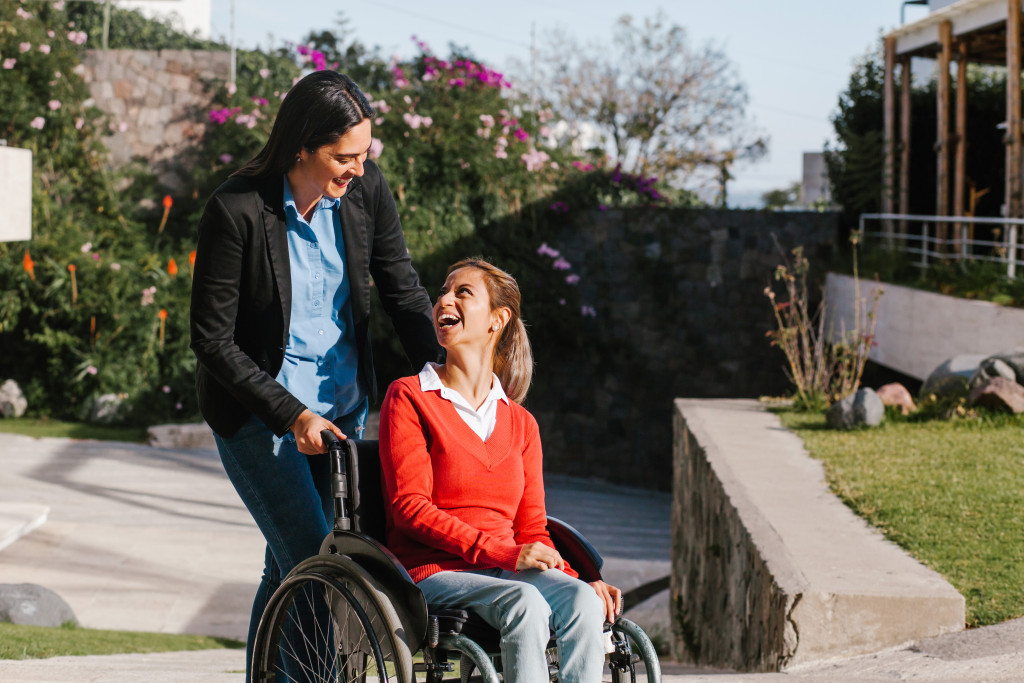- Disability Support Pension is a financial support program providing income to people with disabilities.
- National Disability Insurance Scheme (NDIS) provides support and services tailored to the individual’s needs.
- NDIS allows access to independent living assistance, social and community participation activities, education, and employment support.
- Carer Allowance & Carer Payment programs give financial support to carers.
- The Australian government’s support programs enable disabled women to be empowered and productive members of society.
Living with a disability can be challenging, especially if you are a woman with disabilities. Women with disabilities face multiple social, economic, and cultural barriers preventing them from achieving their full potential.
However, thanks to the Australian government, disabled women are provided the support they need to overcome these challenges and fully participate in their communities. Here’s how they offer support to empower disabled women in their country.
Disability Support Pension
The Disability Support Pension is a financial support program that provides a regular income to people with disabilities who are unable to work. This program is designed to help disabled women who do not have an income and require financial assistance.
Women with disabilities can apply for this pension and receive financial support from the government. This pension can help disabled women maintain a decent living standard and alleviate financial stress, allowing them to focus on their well being and other essential aspects of their lives.
National Disability Insurance Scheme
National Disability Insurance Scheme (NDIS) has been a transformative initiative in Australia to empower and improve the lives of disabled individuals. It has brought a wave of change in the Australian disability sector by providing opportunities for disabled individuals to access support and services according to their needs.
NDIS gives them greater control over their lives and increases their participation in community life. Here’s how NDIS can support women with disabilities and where it can be used.
Access to Independent Living
The NDIS allows women with disabilities to access independent living assistance. It provides them the necessary support to live in their homes and participate in social, community, and economic life. It offers help with daily activities such as cooking, cleaning, and personal care. It also provides women with disabilities with equipment, aids, and home modifications that allow them to maximize their independent living potential.
Social and Community Participation

The NDIS provides a range of social and community participation activities for women with disabilities. It helps to increase their social engagement and supports them to have meaningful interactions with their families, friends, and local communities.
This is why diligenttribe.com.au was founded. It’s a platform that empowers disabled women by giving them access to a supportive community and resources. Through this platform, disabled women can share their stories, advice, and tips. They can also learn about services available to them in their local area.
Education and Employment Support
The NDIS offers various services to women with disabilities at different stages of their work and educational courses. It provides help to women to participate in education, gain employment, and maintain jobs. It also supports employers in making workplace adjustments for those with disabilities.
Health and Wellbeing
The NDIS offers services, support, and aids that promote the health and wellbeing of disabled women. This may include allied health services such as physiotherapy, occupational therapy, speech therapy, and more. It also includes supports that promote healthy lifestyle activities like exercise, healthy eating, and stress management.
Disability Employment Services

The government offers Disability Employment Services (DES) to disabled individuals seeking employment. DES supports job seekers with disabilities to help them find and maintain employment.
Disabled women can access employment-related support to pursue work that suits their skills and interests, considering their disabilities. DES services can help disabled women to overcome workplace barriers, such as inadequate access to accommodations and assistive technologies.
Accessible Public Spaces
The government is committed to making public spaces accessible for people with disabilities, including women. This includes accessible parking, public transport, and building regulations for easy accessibility. Accessible public spaces provide disabled women with the opportunity to participate in their community and engage in activities that may have previously been difficult or impossible.
Support for Carers
Disabled women often rely on the support of their carers to maintain a decent standard of living. The government offers Carer Allowance and Carer Payment programs to assist carers financially. The Carer Allowance is a supplementary payment to carers who provide daily care to a person with a disability.
The Carer Payment is for full-time carers who cannot work and require financial support. These payments can help support carers to ensure disabled women are supported and empowered.
The Bottom Line
Disabled women face multiple challenges in their daily lives, and the government’s support programs offer crucial assistance to these women. All community members need to recognize the value of diversity and support disabled individuals in their endeavors. With government support and community engagement, disabled women can thrive and be productive members.


